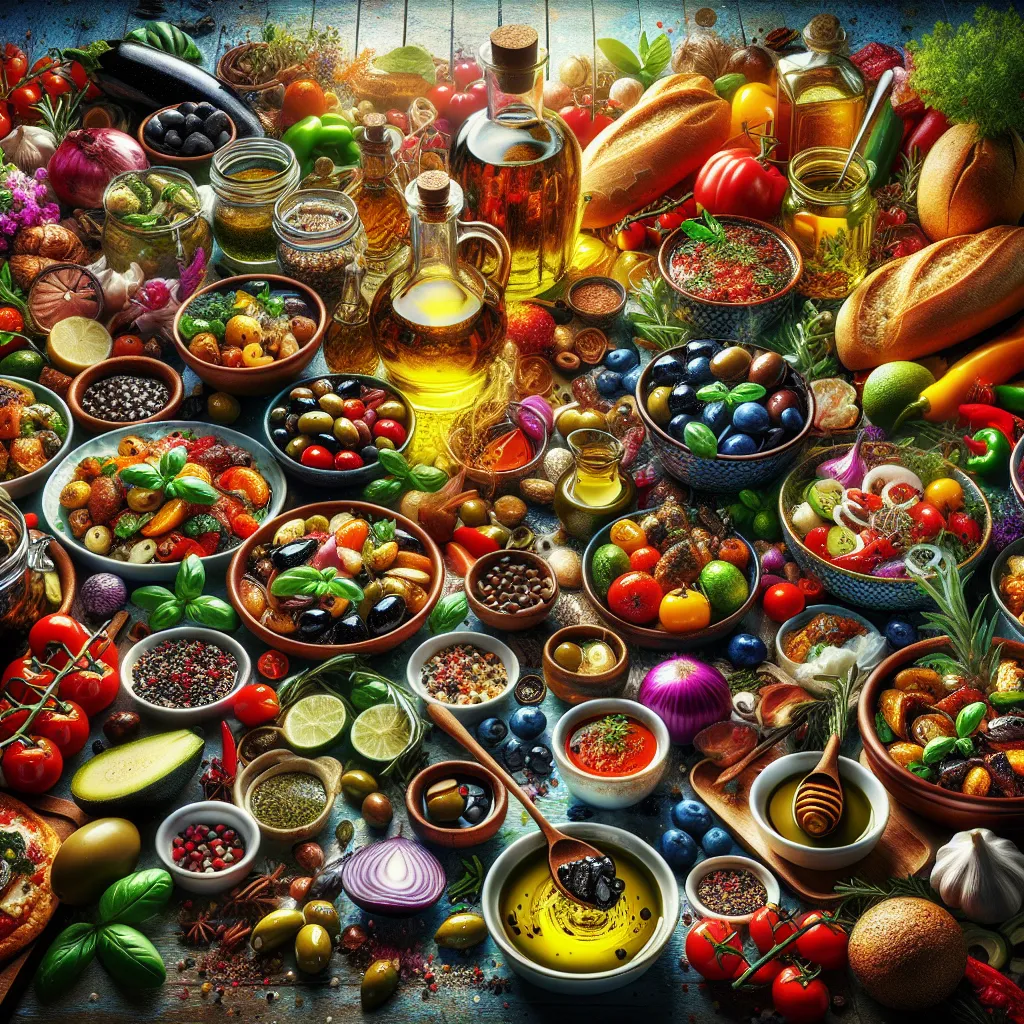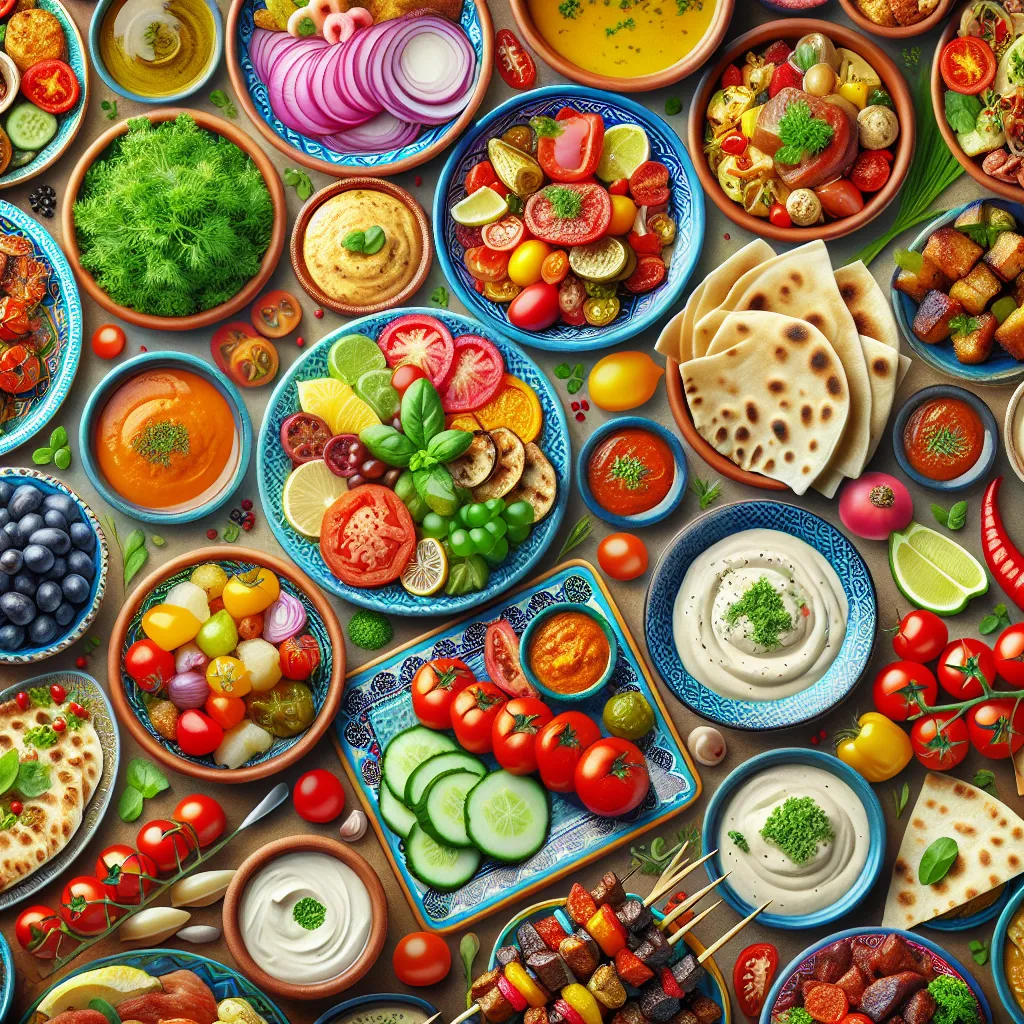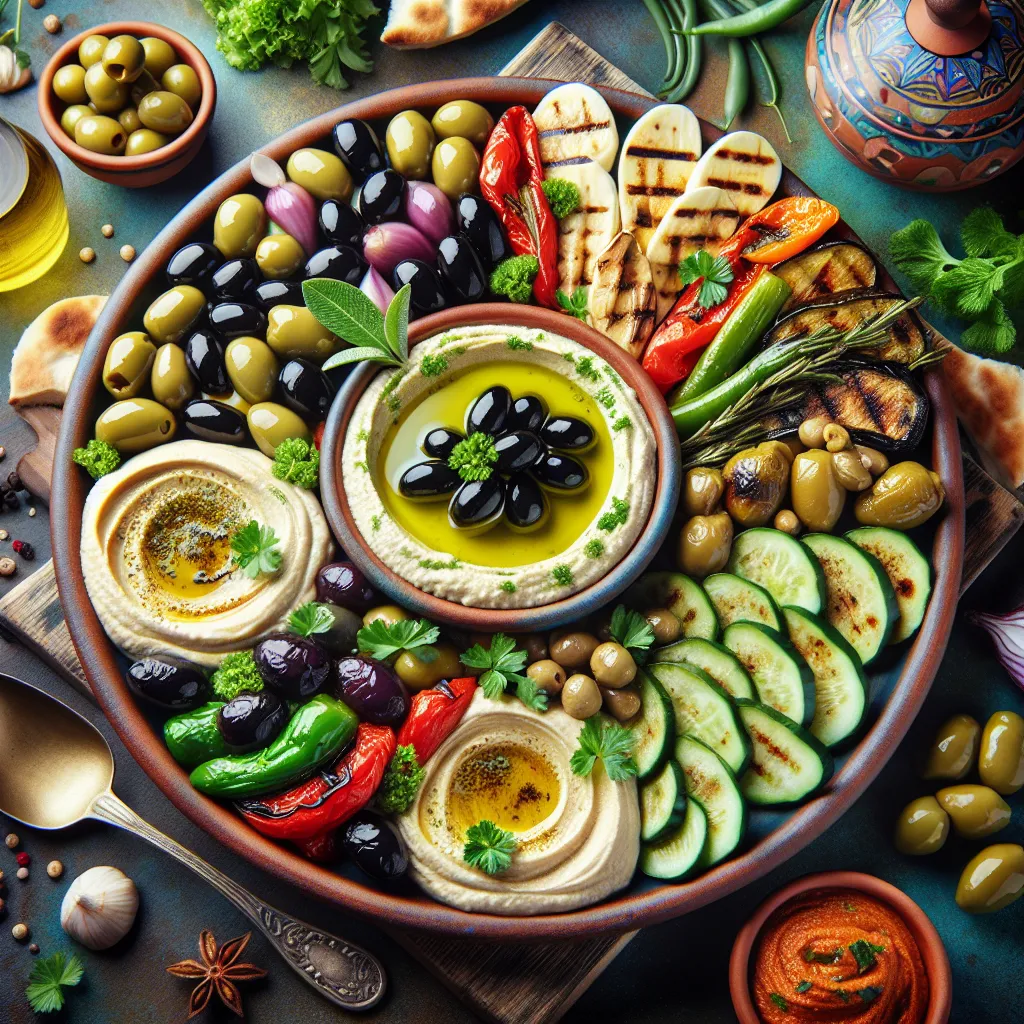The History and Diversity of Mediterranean Cuisine
The history and diversity of Mediterranean cuisine are a testament to the rich tapestry of cultures and influences that have shaped this iconic culinary tradition. From the sun-drenched shores of Greece to the aromatic markets of Morocco, the Mediterranean region offers a tantalizing array of flavors and ingredients that have been celebrated for centuries.
At the heart of Mediterranean cuisine is a deep-seated respect for fresh, seasonal produce. The lush olive groves, vibrant citrus orchards, and bountiful vineyards have provided the foundation for countless iconic dishes. Furthermore, the Mediterranean diet, renowned for its health benefits, is characterized by an abundance of vegetables, fruits, whole grains, and olive oil.
The culinary traditions of the Mediterranean are as diverse as the landscapes that define the region. While seafood dishes reign supreme along the coasts, the hearty stews and slow-cooked meats of the inland regions showcase a different facet of Mediterranean cooking. Each country, from Italy to Turkey to Lebanon, boasts its own unique flavor profiles and signature dishes, reflecting the historical migrations, trade routes, and cultural exchanges that have enriched the region’s culinary heritage.
In essence, the history and diversity of Mediterranean cuisine offer a fascinating glimpse into the interconnectedness of cultures and the enduring legacy of traditions passed down through generations. Exploring the flavors of the Mediterranean is not just a culinary adventure but a journey through time, a celebration of heritage, and a testament to the enduring appeal of this extraordinary gastronomic tapestry.
Essential Ingredients in Mediterranean Cooking
When it comes to exploring the rich flavors of Mediterranean cuisine, it’s essential to understand the key ingredients that define this vibrant and healthy way of cooking.
Extra Virgin Olive Oil: A cornerstone of Mediterranean cooking, this golden elixir is rich in antioxidants and adds a distinctive flavor to dishes.
Fresh Herbs: From oregano and thyme to rosemary and parsley, Mediterranean cuisine relies on an abundance of fresh herbs to infuse dishes with fragrance and depth of flavor.
Tomatoes: Whether fresh, sun-dried, or in the form of rich, velvety sauces, tomatoes are a ubiquitous ingredient in Mediterranean cooking, bringing sweetness and acidity to a wide array of dishes.
Garlic: Known for its pungent flavor, garlic is a fundamental element in Mediterranean cuisine, adding depth and aroma to everything from sauces to marinades.
Citrus Fruits: Lemons and oranges feature prominently in Mediterranean cooking, providing a burst of tangy brightness to seafood, salads, and marinades.
Olives and Olive Products: Whether whole, sliced, or as velvety olive oil, these savory fruits are a staple in Mediterranean cooking, contributing richness and depth to many dishes.
These essential ingredients form the foundation of Mediterranean cuisine, creating a tapestry of flavors that celebrate the bountiful produce and culinary traditions of the region.
Traditional Mediterranean Dishes You Must Try
When it comes to exploring the rich flavors of Mediterranean cuisine, there are certain traditional dishes that you simply must try. The Mediterranean region is known for its vibrant and diverse food culture, and these traditional dishes are a true reflection of the culinary heritage of the area.
One of the must-try dishes is the classic Greek moussaka, a comforting casserole made with layers of eggplant, spiced meat, and creamy béchamel sauce. Its rich and hearty flavors are a testament to the depth of Mediterranean cooking. Another iconic dish is the Spanish paella, a colorful rice dish infused with saffron and packed with a variety of seafood or meat. The Italian risotto, creamy and velvety, is another delight not to be missed, especially when prepared with fresh seafood or wild mushrooms.
Exploring the traditional flavors of the Mediterranean wouldn’t be complete without savoring the Turkish kebabs, featuring tender, marinated meats grilled to perfection and served with fluffy pita and tangy yogurt sauce. Moving to the coastal regions, no exploration of Mediterranean cuisine is fulfilled without indulging in the fresh and flavorsome seafood mezes from the shores of Greece or Italy.
These traditional Mediterranean dishes are just a glimpse into the vast and delectable world of Mediterranean cuisine, showcasing the region’s use of fresh herbs, olive oil, and aromatic spices that define its culinary identity.
Exploring the Health Benefits of Mediterranean Diet
When exploring the rich flavors of Mediterranean cuisine, one cannot overlook the significant health benefits associated with the Mediterranean diet. This renowned way of eating is not only about delicious food, but also about promoting overall well-being. The Mediterranean diet is characterized by an abundance of fruits, vegetables, whole grains, and legumes, along with moderate consumption of lean protein, particularly fish and poultry. Olive oil is a cornerstone of this diet, providing healthy monounsaturated fats. Additionally, the inclusion of nuts, seeds, and dairy products offers essential nutrients for a well-balanced eating plan.
Studies have shown that adhering to the Mediterranean diet can lead to numerous health advantages. Firstly, it has been linked to a reduced risk of heart disease and stroke, thanks to the emphasis on healthy fats and high-fiber foods. Moreover, the consumption of fresh produce and olive oil provides a rich source of antioxidants, which help combat inflammation and oxidative stress in the body. The Mediterranean diet is also associated with improved brain function and a lower risk of cognitive decline in older adults.
Furthermore, this dietary pattern has been recognized for its potential in promoting longevity and managing weight. By focusing on nutrient-dense foods and incorporating healthy fats, the Mediterranean diet can support sustainable weight management and reduce the risk of obesity-related conditions. Notably, the combination of wholesome ingredients and the avoidance of processed foods aligns with the principles of a balanced and healthful approach to eating.
In summary, the Mediterranean diet not only offers a delightful gastronomic experience but also provides an array of health benefits. By savoring the diverse flavors and ingredients of Mediterranean cuisine, individuals can nourish their bodies and support overall wellness, making it a compelling dietary choice for those seeking both enjoyment and healthful living.




